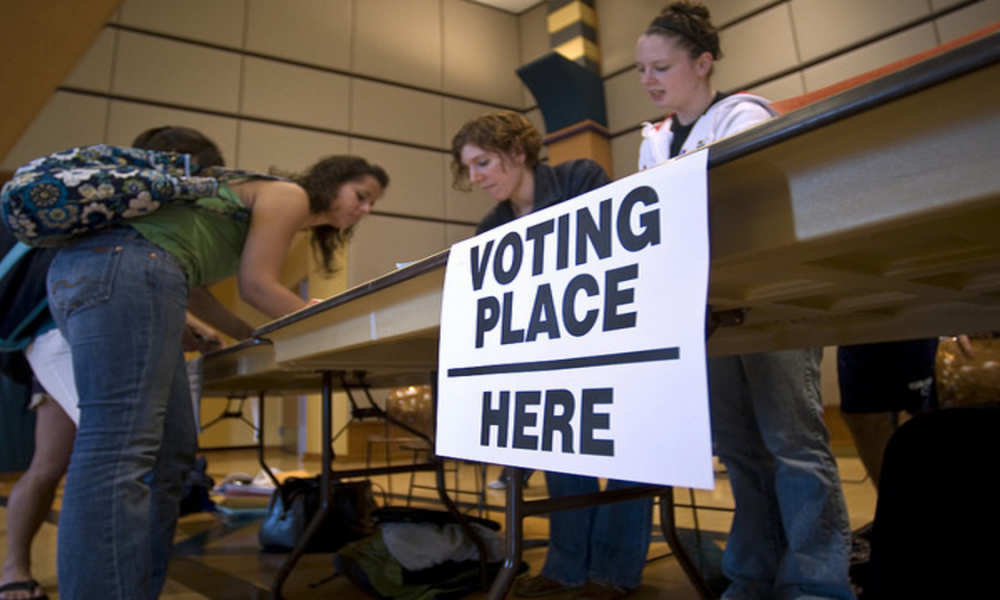During Tuesday’s primary, Pennsylvania voters will decide if the state constitution should emphasize greater anti-discrimination protections. State Sen. Vince Hughes (D-Pa) suggested this last year after George Floyd’s death.
What We Know:
- Hughes states his proposal needs approval from court cases and judicial decisions. However, he views the amendment as “a step in the right direction.” The lawmaker requested his initiative take effect in the case that conservative judges appointed by former President Donald Trump or the Republican-majority U.S. Supreme Court reverse federal anti-discrimination case law.
“Any extra protection that we can provide around the issue of race and ethnicity, I think we need to be in the business of providing… if we can add that extra protection to the state constitution, the lawyers that I talk to said that that’s a good thing,” said Hughes.
- Both chambers first passed the constitutional amendment last summer and once again earlier this year. The amendment was found on Tuesday’s primary ballot alongside two GOP racial equality amendment proposals. If voters approve the motion, it will add a section to the state constitution which protects one’s equality of rights under the law. Their liberties “shall not be denied or abridged because of someone’s race or ethnicity,” the Associated Press (AP) reports.
- Some rural Pennsylvanians feel uncertain about passing the movement due to its unknown ultimate effects. Rep. Jesse Topper (R-Pa) told AP they think the word equality “has somewhat been co-opted over the years by left-leaning groups to mean whatever they want it to mean.” He assured his constituents that there were no nefarious ties behind the proposal.
- Rep. Tim Briggs, the ranking Democrat of the Judiciary Committee, declared the Legislature did not hold hearings on the three amendments, so citizens feel wary. Furthermore, if it results in unintended consequences, another statewide vote would need to occur.
“A constitutional amendment is a tough way to legislate, because when you don’t put a lot of thought into what the consequences are, it’s hard to correct,” Briggs said.
- Many legal officials, such as state Senate Majority Leader Kim Ward and Duquesne Law School professor Bruce Ledewitz, feel the amendment will not majorly impact the state. They think it mirrors anti-discrimination standards in the Constitution’s equal protection clause. Additionally, Jon Greenbaum, chief counsel at the Washington-based Lawyers’ Committee for Civil Rights Under Law, says Hughes’ amendment could raise the possibilities of state court lawsuits over occasions when government policies unintentionally harmed racial groups. Disparate impact lawsuits can only occur in federal courts in limited circumstances. These include voting rights, employment discrimination, and Fair Housing Act violations.
- To provide more information, the state attorney general’s office created an analysis for voters. The document explains the measure would increase defenses against discrimination, especially that which unconsciously affects people of color. Also, the amendment will still permit race-conscious programs that promote equality. The wording differs from other states’ legislations where similar rulings were passed only to challenge affirmative action. Therefore, it ensures the safety of these programs.
- Civil rights groups believe if voters approve this choice, it may lead to policy changes in housing, policing, education, and more. The American Civil Liberties Union (ACLU) of Pennsylvania says this could happen if it lets state courts rule against government entities for inaction that previously denied equality of rights. For example, the amendment could address disparities in education funding and programs.
- The state’s constitution already highlights “all men are born equally free and independent” in various locations. It also contains a 1971 gender equality amendment and certifies state or local governments cannot stop one from exercising their civil rights. If residents pass the new addition, it will become Pennsylvania’s fourth equality provision.
Despite disagreements from voters and expected low turnout, the state’s constitution greatly depends on the people. Since 1993, Pennsylvanians authorized 19 amendments.




Leave a Reply